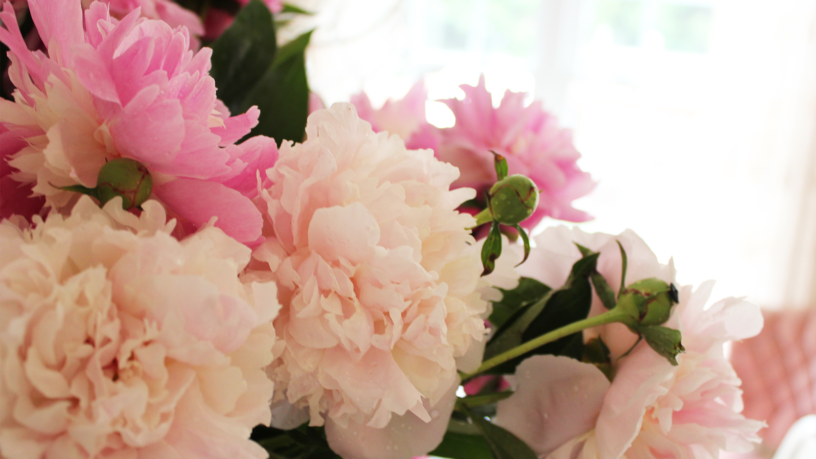I’m a huge fan of the perennial.
If you aim to fill your flower beds so that they will flourish with a beautiful variety of plants and flowers every season.Perrenials are your best choice.
Mastering perennials does require a lot of commitment. Adding them to your garden mix involves planning, preparation, and a bit of homework. It is essential to prepare the soil according to each individual plant’s needs and pay attention to the amount of sun or shade your desired location receives.
Here are some of my favourite varieties of perennials based on their appearance, hardiness and overall “Wow” factor.
Daylily
Despite its name, the daylily is not a Lily. It is not started as a bulb, but a root system and has been bred specifically to produce beautiful flowers.
It is a hardy perennial that survives well in our Northern locale suited for both large and smaller gardens.
Daylilies thrive in full sun of at least 5 to 6 hours. Ensure they have moist, well drained soil and treat with an annual compost to keep these perennials healthy.
Plant daylilies in the late spring or early fall and water regularly.
Peony
The Peony is another hardy perennial with a sweet scent and double bloomed flowers. If cared for properly, the peony will give you years of enjoyment and doesn’t mind growing in the same spot.
The peony prefers a full to partial sun environment with average moisture. Ensure the soil is enriched with a compost and provide an inch of water per week during the hot summer. This is especially required if they are newly planted in your garden. More established peonies will do fine in drought situations.
Hosta
One of my favourite additions to the garden, walkway or along fencing is the Hosta. The hosta requires little care and does well in shady spots. If you are considering adding this hardy perennial to your garden or landscaping plans, be sure to plant them in a bed of soil rich in organic matter such as rotting leaves and compost. Protect the plant with a bit of mulch to discourage pests such as slugs or snails and enjoy.
Shasta Daisy
Shasta daisies are a European native but are now considered a naturalized flower in North America. These perennials tend to be aggressive growers and can spread amongst your other plants. To avoid this, choose a variety that doesn’t produce viable seeds or keep your Shasta daisies contained to a isolated location in your garden.
Grow in full sun for best results and plant in a moderately fertile soil.
Clematis
Clematis vines are a beautiful addition to any garden, offering bold colours from either the large, flowered hybrids or the smaller flowered species. Clematis prefer fertile well-drained soil with regular watering around the root ball to ensure it doesn’t dry out. Fertilize regularly and position in a sunny location. Despite preferring full sun, Clematis does not do well in extremely hot environments. Be sure to keep the roots cool by covering with leafy shrubs or other perennials.
Hollyhocks
One of the taller perennials, hollyhocks can grow up to eight feet without support.
Only single flowered hollyhock is hardy enough for Canadian gardens and is available in perennial form. If growing from seed, an April start would provide blooms in August. The seeds require cool conditions to start, which may be difficult to provide indoors.
Give them a dedicated spot in the garden along with a good dose of patience.
Bearded Iris
An excellent choice for the perennial garden, the bearded iris is a resilient plant that can grow with minimal attention. Bearded irises require well drained soil and a sunny location. They do not tolerate overly moist conditions so it might be best to give Irises their own secluded patch within your garden.
It is best to divide and replant overgrown clumps in mid to late July through to early August.
Irises bloom the year after planting.
There are many, many more plant options for your perennial garden – these are just a few of the common varieties which provide beautiful results.
Growing and maintaining the perfect perennial garden will be a rewarding experience.
Happy Gardening.





Leave a Reply